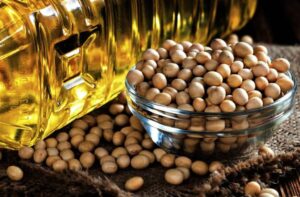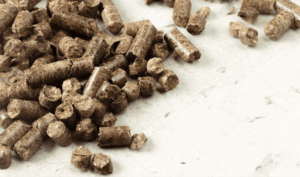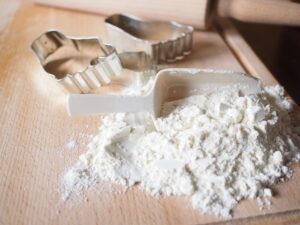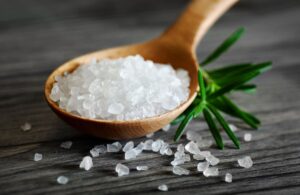
Soybean oil exports in the 2024-2025 marketing year (MY) increased by 52.5% in physical terms to 521.3 thousand tons, and by 98% in monetary terms to $521.7 million compared to the previous year, according to the industry association Ukroliyaprom.
The association noted that exports of soybean meal in 2024/2025 MY increased by more than 95% to 1,336,800 tons, and in monetary terms by 54.4% to $461.1 million.
“This indicates the demand for soybean oil and meal in many countries around the world, in particular the EU, and the unique opportunities for increasing domestic processing of raw materials and growing production and exports of high value-added products,” Ukroliyaprom noted.
The industry association specified that Ukrainian processors exported 85% of soybean oil to EU countries and the remaining 15% to other countries around the world. The leaders in the purchase of Ukrainian soybean oil in the 2024/2025 marketing year were Poland (345,300 tons worth $344.5 million), Germany (22,000 tons worth $22 million), Bulgaria (17,900 tons worth $16.3 million), as well as India (36.7 thousand tons worth $35.3 million), Saudi Arabia (11 thousand tons worth $11 million), and the UAE (7.2 thousand tons worth $8.2 million).
The situation with soybean meal exports in 2024/2025 MY was similar: 81.3% was supplied to EU markets, 18.7% to other countries. Poland (475 thousand tons worth $180.9 million), Hungary (256,200 tons worth $86.6 million), Romania (107,000 tons worth $35.2 million), and Turkey (78,700 tons worth $22.3 million).

According to the results of the 2024-2025 marketing year (September 2024 – August 2025), Ukraine exported 158,000 tons of granulated beet pulp worth a total of $23.2 million, the National Association of Sugar Producers “Ukrtsukor” reported on Facebook.
The industry association noted that the largest importers of Ukrainian beet pulp were Germany with 22% of the total volume of its exports from Ukraine, Spain and Poland with 21% each, followed by Italy with 12% and the Netherlands with 9%.
According to the business association, the leaders in beet pulp exports were Radekhivsky Sugar, Almeida Group, and Ukrprominvest-Agro, which together exported 83% of the total volume.
“The production and export of granulated pulp is not only an effective use of a by-product of sugar production, which increases the profitability of the beet sugar industry as a whole, but also provides additional export revenue, which the country so badly needs today,” Ukrtsukor concluded.

According to The Guardian, Taiwan ranks first among global importers of Russian oil, a light petroleum product that is particularly in demand in the semiconductor and chemical industries, The Guardian reports, citing a study by the Centre for Research on Energy and Clean Air.
In the first half of 2025, Taiwan imported Russian oil worth about $1.3 billion, which is 44% more than in the same period in 2024. Average monthly imports were almost six times higher than in 2022.
The increase in imports has been observed since the start of the war in Ukraine: from February 2022 to June 2025, Taiwan imported 6.8 million tons of Russian oil worth a total of $4.9 billion, which is approximately 20% of all Russian exports of this product.
Although Taipei has formally joined the sanctions against Russia and supports Ukraine, no restrictions on imports of fossil fuels from Russia have been imposed. Experts note that the increase in purchases by Taiwan could undermine the trust of its democratic allies and intensify criticism from the international community.
Naphtha is a light liquid fraction of petroleum or a petroleum product obtained from the refining of crude oil.
It is used as a feedstock in petrochemicals, especially in the production of olefins and polymers. It can be mixed with gasoline or used in reforming processes to improve the octane rating of fuel. It is also used as a solvent in the chemical industry, for diluting heavy oils, and in the production of paints and varnishes.
Oil is particularly important for Taiwan, as the island’s economy depends on the semiconductor industry, which requires high-purity chemical components. Stable access to petroleum products ensures supply chains in electronics and microelectronics.

Ukrainian producers exported 66,700 tons of wheat flour during the 2024-2025 marketing year (July-June), which is 27.9% less than in the previous season, when this figure was 92,500 tons, according to the Ukrainian Flour Millers Association.
The industry association noted that about 46% of exports in the 2024/2025 season went to EU countries. The top five importers of Ukrainian flour were Moldova (20,300 tons), the Czech Republic (15,300 tons), Palestine (10,800 tons), France (3,000 tons), and Spain (2,900 tons).
Exports of other types of flour in the 2024/2025 season amounted to 4.6 thousand tons (in 2023/24 MY – 5.4 thousand tons). The share of EU countries in terms of export volumes was 14% (27% in 2023/2024 MY). The five countries to which other types of flour were supplied in 2024/25 MY were Moldova (3.2 thousand tons), Israel (0.5 thousand tons), Croatia (0.2 thousand tons), Bulgaria, and Spain (0.1 thousand tons each).
CZECH REPUBLIC, FLOUR, FRANCE, IMPORTER, MOLDOVA, PALESTINE, SPAIN

In January-September 2024, Ukraine exported 64.913 thousand tons of honey for $124.817 million, which is 1.7 times and 44.3% more than in the same period of 2023, respectively.
According to statistics released by the State Customs Service (SCS), Germany became the largest buyer of Ukrainian honey, purchasing 22.13% of total exports worth $27.627 million in January-September 2024.
The United States and France accounted for 16.1% and 11.7% of supplies, for which these countries paid $20.139 million and $14.63 million, respectively.
A year earlier, the top three buyers of Ukrainian honey were Germany with a share of 24.9%, Poland and France with 16.0% and 7.32%, respectively. Ukraine earned $21.5 million, $13.88 million, and $6.332 million from the sale of honey to them, respectively.
In January-September 2024, Ukraine increased honey imports by 36.1% to 200 tons, for which it paid $105 thousand. Its suppliers were Poland and Bosnia and Herzegovina, which supplied 75 tons (37.5%) each, as well as Romania, which accounted for 22% of supplies with 44 tons.
A year earlier, Ukraine imported 122 tons of honey exclusively from Poland.
As reported, Ukraine has been among the world’s top five honey exporters for several years. In 2023, Ukraine ranked fourth among the traditional world leaders in honey exports with 55.4 thousand tons. In this ranking, it is ahead of China with 152.6 thousand tons, India with 98.7 thousand tons, Argentina with 68.9 thousand tons, and Brazil with 28.5 thousand tons of honey.

The share of imported salt in the Ukrainian market in January-June 2023 reached 15%, 211.737 thousand tons were purchased on foreign markets for $46.196 million.
According to statistics released by the State Customs Service (SCS), the largest supplier of salt to Ukraine remains Turkey, which provided 32.4% of all salt imports in the first half of 2023 and earned $14.966 million.
Egypt and Romania accounted for 23.3% and 17.7% of shipments, for which these countries earned $10.745 million and $8.174 million, respectively.
A year earlier, the top three importers of Ukrainian salt were Turkey with a market share of 29.8% of supplies, Poland and Romania with 22.8% and 19.8% respectively. Their revenue from its sale amounted to $7.492 million, $5.722 million and $4.969 million, respectively.
The State Customs Service recalls that in 2022, the share of imported salt in the domestic market totaled 15%. On foreign markets Ukraine purchased 438.105 thousand tons of salt for the amount of $92.116 million.
In 2021, the level of imported salt in Ukraine did not exceed 2%, which amounted to 142.813 thousand tons at $12.920 million.
For export in this pre-war year, Ukrainian enterprises supplied 710.041 thousand tons of salt, from the sale of which they received $28.323 million.
In 2022, Ukraine reduced salt exports by 80% to 142.038 thousand tons compared to 2021, with revenues of $3.821mn.
The main buyers of Ukrainian salt in 2021 and 2022 were Poland (import share of 39.1% and 44.4%, respectively), Hungary (27.4% and 27.3%) and Romania (7.3% and 5.1%).
In the first half of 2023, exports of Ukrainian salt amounted to only 149 tons at $32 thousand. It was bought by Romania (93.5% of supplies) and Moldova (3.2%).
Earlier, the analytical “Club of Experts” analyzed the situation with export and import of salt in Ukraine, for more details see the link